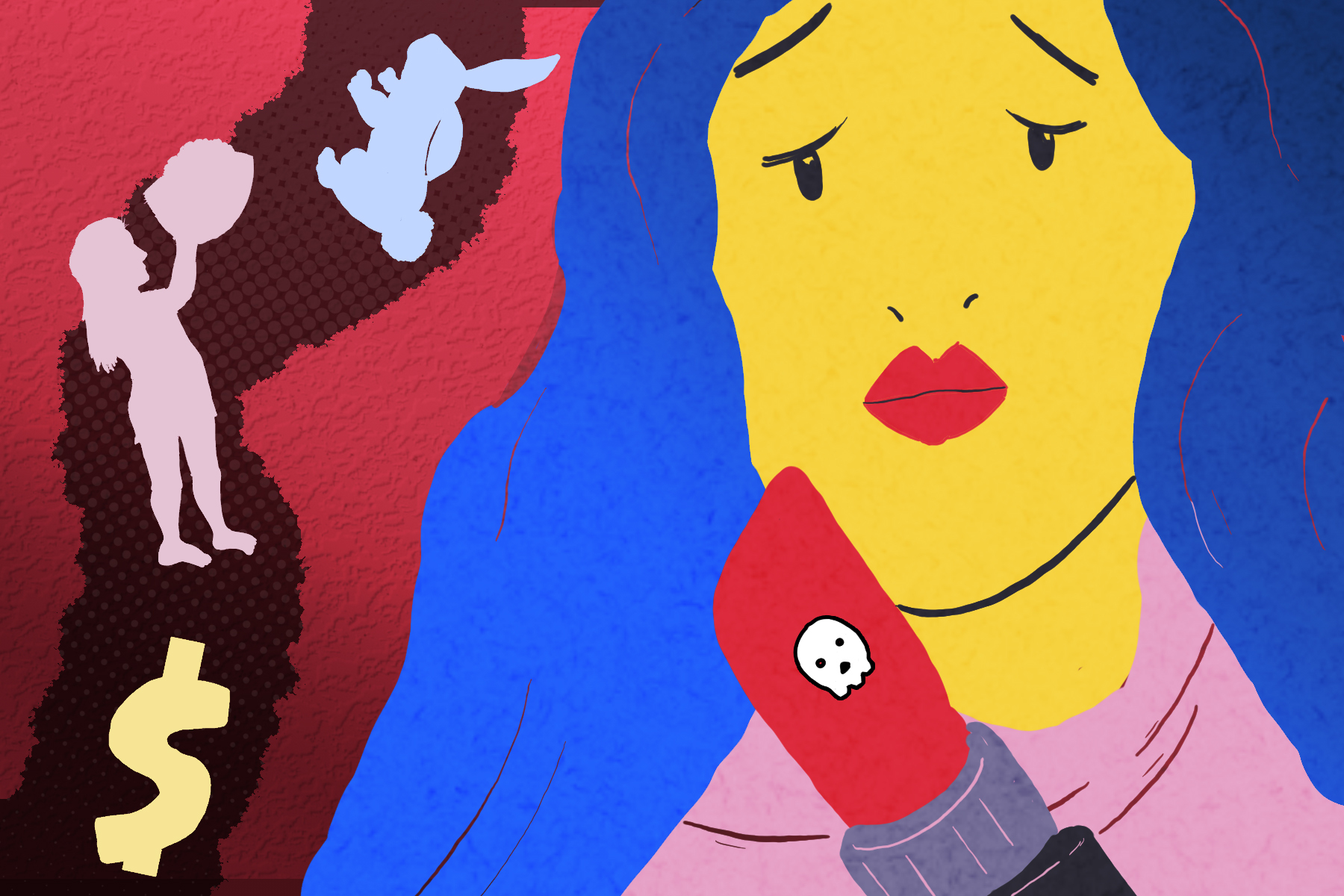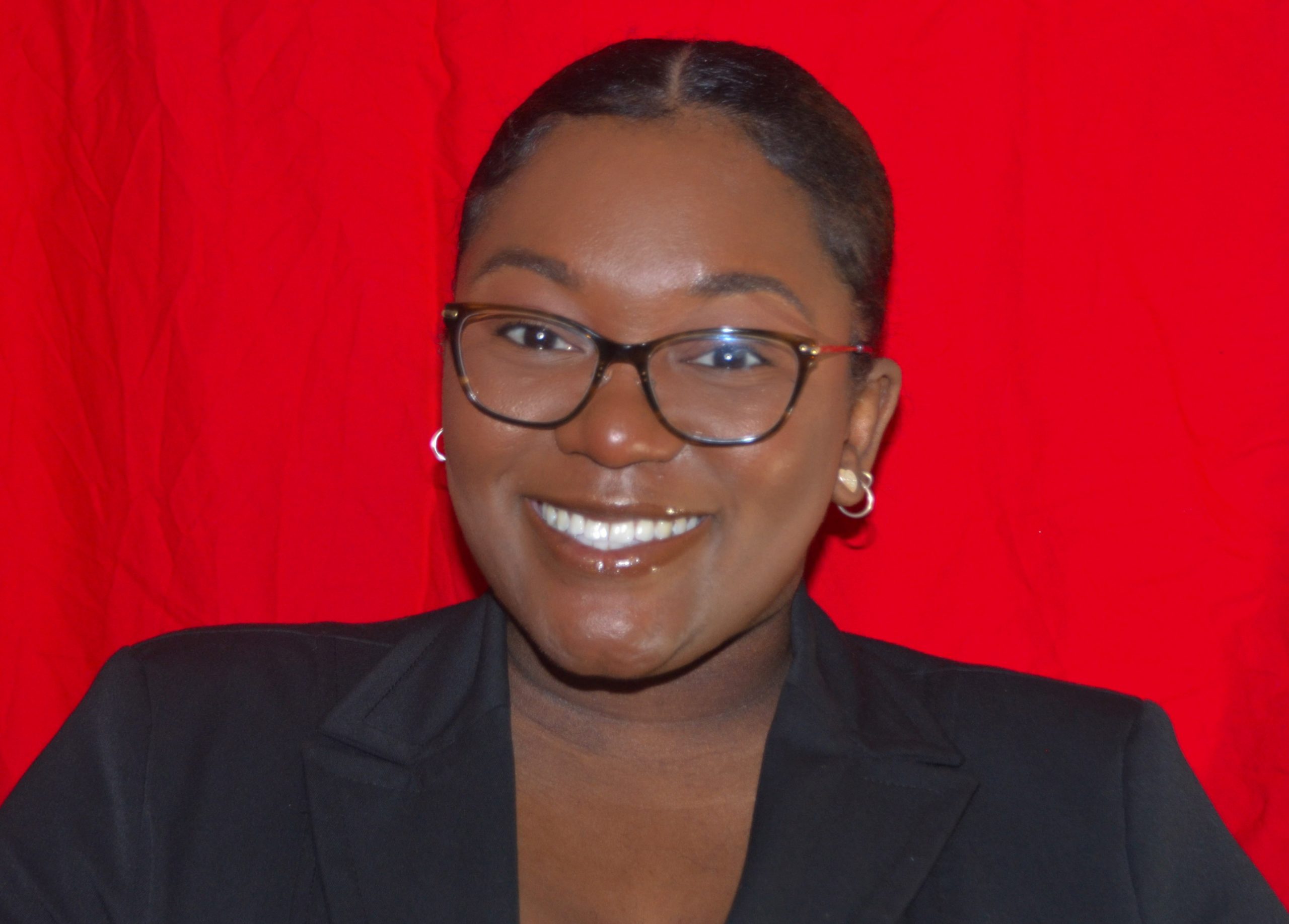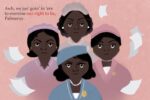Close your eyes and imagine the iconic ‘90s era. Sure, their skinny eyebrows and light blue eyeshadow was a classic makeup look, but you know what wasn’t? Flashback and ashy foundation. It was either too light and gray or not the correct undertone. Either way, the Naomi Campbells, Tyra Banks and Halle Berrys of the ‘90s deserved so much better.
I’ve been in love with the concept of makeup since I was a teenager. This was a struggle because I wasn’t allowed to wear anything except Maybelline Great Lash and Baby Lips. It was also an intimidating time to gain an interest in makeup because in 2016, it was either full glam or no makeup at all.
I was always watching makeup tutorials on YouTube, and every time we’d go to Target or Walmart, I’d head for the makeup section and swatch various shades of foundation. I was often unlucky when it came to finding my shade, which prevented me from dipping my foot into the pool of the world of makeup.
I didn’t get into makeup until 2016. My first full face of makeup consisted of Milani Prime Shield Primer, Maybelline Fit Me Foundation (360 Mocha) and concealer duo and the Anastasia Beverly Hills Brow Wiz. I didn’t even use a setting powder or setting spray. When I scroll through my Snapchat memories, I cringe viewing the products and applications, but every black girl knows the darker you are, the harder it is to be included in the makeup industry.
You would think with the racial climate we live in today, industries across the spectrum would keep up and adjust when needed. You’d think, right? But women with dark complexions often find it difficult to acquire their shade of foundation, and the makeup industry refuses to catch up with the times.
I couldn’t try some of the most hyped foundations because they didn’t have my shade. Some brands excluded a range of shades altogether, while others made the attempt yet failed miserably.
The beauty industry is worth well over $400 billion. You would assume with that amount of money these brands would hire someone (preferably black) who specializes in products for darker-complected people. What I’ve noticed as a black woman who loves makeup is that the darker the complexion, the harder it is to find a match, because the skin is more complex. That being said, I believe some brands struggle with darker complexions because no one on their team has the resources to deal with the issue.
Since it’s now 2020, there should really be no excuses. Multiple brands have released new foundations, concealers, bronzers and contour shades, so it’s clearly not that hard, especially when a platform as big as YouTube has hundreds of black women well-known in the industry helping brands come out with more accurate shades.
For example, Jackie Aina collaborated with the brand Too Faced to add 11 new shades to their most hyped Born This Way foundation. Out of the 11 shades, Aina helped create nine of them. The founder of Too Faced, Jerrod Blandino, actually reached out to Aina asking for help to expand the foundation line.
Too Faced acknowledged their lack of gradient. It was amazing not only seeing the brand hold themselves accountable, but also making sure the change happened. It’s one thing to take responsibility for your actions, but without change, what’s the point?
Aina runs a YouTube channel that has collected over 3 million followers. Her most recent collaboration was with Anastasia Beverly Hills, where she made and designed her own palette. It was the first collaboration I really appreciated because it was made by a black woman, designed for black women; unless black women with a platform speak on the lack of diversity, the brands won’t understand where people like me are coming from.
The most stressed issue in the makeup industry is shade range, which has been a problem for a while. Yet brands like beautyblender, KKW Beauty and Tarte Cosmetics fail to make the cut. The brand beautyblender is known for their makeup sponges, but in 2018, they decided to release their first foundation.
What was interesting about the product wasn’t the foundation, but the packaging. It came with a dip or groove in the bottle where you pump out the foundation, which prevents you from having to use the back of your hand. Convenient? Yes, but the shade range was one of the most disrespectful launches I’ve seen. One of their shades looked so orange they should’ve called it “Cutie.”
They received significant backlash for their limited number of deep shades, which is ironic because prior to the launch, the brand took to Twitter and shaded the brand Real Techniques for saying they’re “copycats.” The irony in this was that beautyblender basically said Real Techniques should stick to making brushes, and the reviews on their foundation suggested they stick to making their makeup sponge.
Not to mention, beautyblender was being rude because not everyone can afford a $20 sponge. Why spend $20 when you can get two or three of the same quality for the price of one?
“can I copy your homework?”
“yeah just change it up a bit so it doesn’t look obvious you copied”
“ok” pic.twitter.com/ftwgv9062J
— beautyblender (@beautyblender) March 22, 2019
Another brand people were excited for was the launch of KKW Beauty Contour Kits. Who wasn’t? Nearly every black woman on the planet, because anyone darker than Halle Berry was basically left out of this launch. What KKW considered “deep dark” should’ve been the tan category; they should’ve added another contour kit that would’ve favored the true “deep dark” shades.
If brands aren’t losing customers due to their lack of shade range then it’s based on who the companies choose to support. A prime example is Morphe, a very popular (and somewhat overhyped) makeup brand that has collaborated with beauty gurus such as James Charles, Jaclyn Hill, Manny MUA, Laura Lee and Jeffree Star. The problem I have with Morphe isn’t their makeup, it’s who they choose to support and how they go about it.
A couple years ago, Morphe collaborated with Laura Lee. They then dropped her as an ambassador and pulled her line when old racist tweets of hers resurfaced. Her apology seemed fake and insincere.
On the other hand, Jeffree Star has been filmed degrading black people, more specifically, black women. His apology didn’t mean anything because he continues to do it, but Morphe still collaborated with him in late 2019. If they both have a racist past, why collaborate with one and not the other?
Coming into the makeup industry was hard and trying at times, but I love the creativity that comes from it. Since black women know how hard it is to be included in this industry, some of them created their own brands designed specifically for black women.
Some brands are more inclusive, such as Fenty Beauty, and some focus primarily on darker skin tones, such as Mented Cosmetics. Other brands include Juvia’s Place, Beauty Bakerie, Uoma Beauty and Range Beauty.
There are other brands that aren’t owned by someone who is black, but they demonstrate inclusivity. These brands include: Maybelline Fit Me Foundation, Makeup Forever Ultra HD Foundation Loreal True Match Foundation, Anastasia Beverly Hills Stick Foundation, MAC Studio Fix Liquid Foundation, NYX Can’t Stop Won’t Stop Foundation and Firm Flesh Stick Foundation.
Like I said, it’s 2020. Get your range together.

















